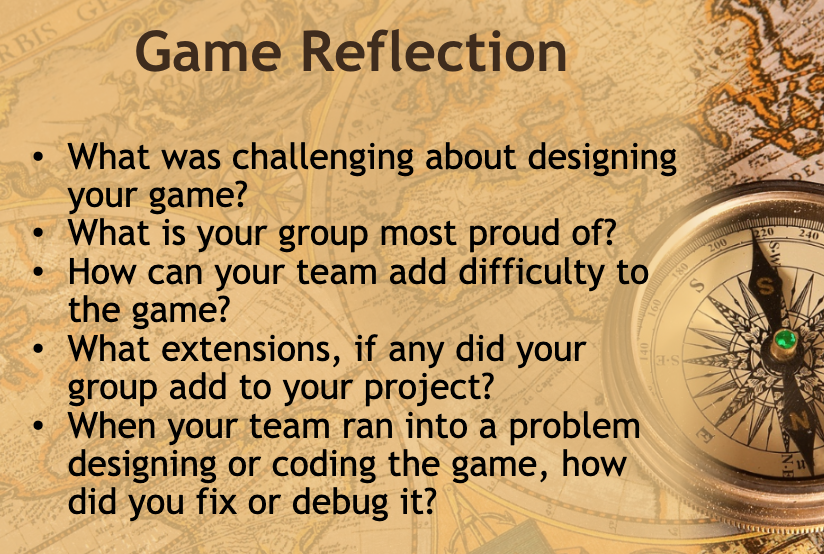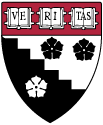Examples of Creative Computing Design Journals
Why Design Journals?
The practice of keeping design journals helps learners brainstorm, plan, iterate, and reflect. But teachers and students often wonder what's involved. What can these journals look like? How structured is the practice of keeping them? How personalized are they?
On page 14 of the Creative Computing Curriculum guide, we frame one approach:
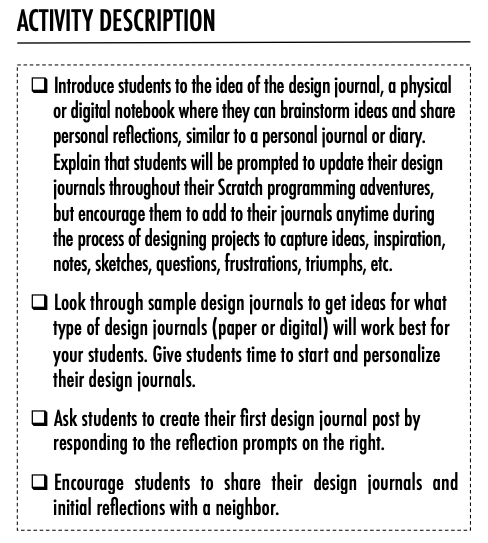
Example Journals
Here are some example journals, shared by fellow Scratch Educators.
1. Google Slides. Susan Ettenheim's students use Google Slides to create their journals. In Susan's words, "The journals have been a great vehicle for students to articulate personal connections, ask questions and explore related topics." In this journal, Susan's student shares their reflections on many projects, including some from the Creative Computing Guide. You can see how Susan poses questions that help students explore the design process by, for example, asking questions about the potential uses of various blocks.
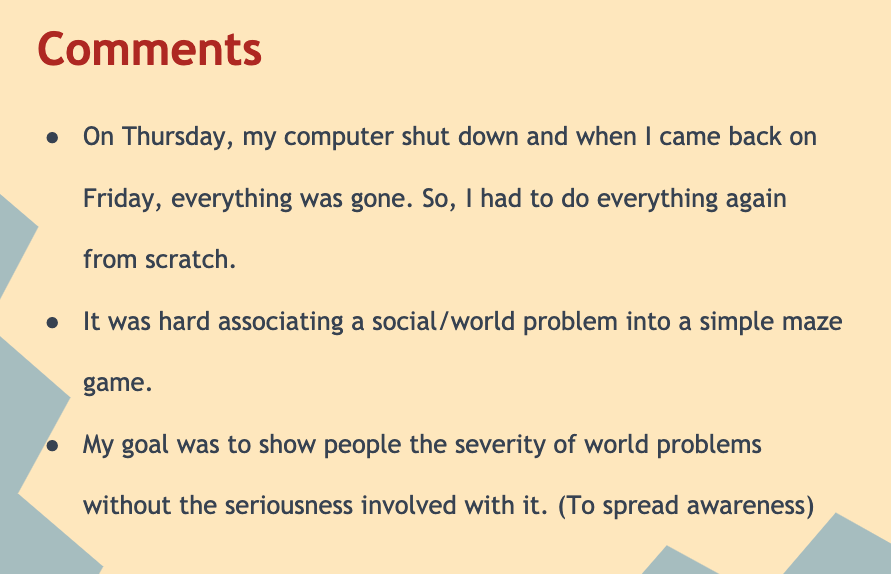
2. Analog Journals. For analog examples, check out this video from Cobie Van de Ven. Cobie invites students to "write and draw plans and stories and their reflections” in simple DIY journals, made of printer paper that they staple together. Students typically do this during the last 10 minutes of class. In the following class, Cobie asks a few students to share their entries from the previous class, creating some continuity from lesson to lesson and communicating the importance of the reflective process. Cobie says, "My experience is that analog journals gives them good focus, generate a lot of attention for their actions, creativity, and diversity.”
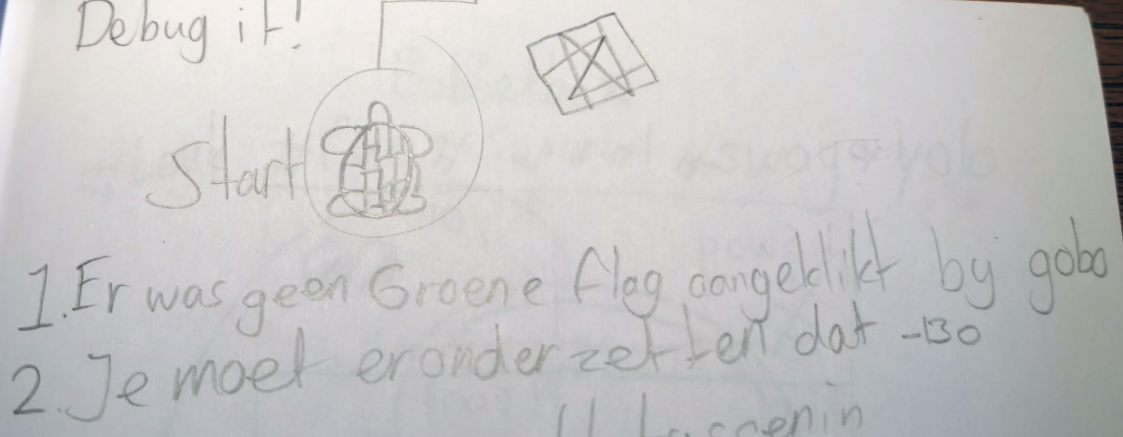
3. Journal Templates. This design journal template, created by Alexis Cobo, helps support 4th graders in their pair-programming video game design project, a cross-curricular exploration of Social Studies and Computer Science.
